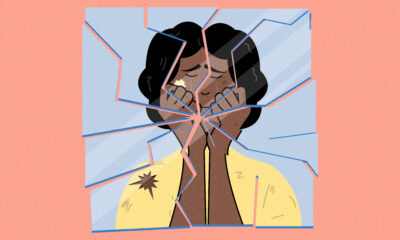Features
Nafisa Atiku: How We Can Pave Way for Young Women to Drive Transformation

Through my advocacy for young women to be involved in politics, I realised the issues young girls and young women face are not mutually exclusive; they are interwoven and linked at every turn. For example, a lack of access to quality education or gender-based violence impacts young women’s involvement and leadership in climate change, politics, business and other critical sectors of national development. It also enhances how these young women are seen in international and national development efforts, and whether or not they will be recognised as a critical and powerful force for change.
It is inspiring to witness the increasing number of women entering various fields, such as technology, business, entertainment, and politics. However, it is disheartening to acknowledge that despite this progress, the younger generation of women often faces double discrimination – not only due to their gender but also due to their age. Through my journey, I have engaged powerful young women as co-creators and advocates in eradicating gender-based violence in their university communities; witnessing their passion, dedication, and innovative ideas has shown me their immense capacity to drive long-term, sustainable, and inclusive change.
One such woman is Karimot Odebode, a young Nigerian poet selected as a United Nations SDG champion in 2022. She has created interventions and is famous for the ‘Black Girls Dream Initiative’ where she promotes education and leadership through arts, advocacy and technology. She’s known for her local and global impact and is an excellent example of how young women can spearhead sustainable development when given the chance.
Like Karimot, young women must be seen as active participants and co-creators of sustainable development, rather than being perceived as victims of societal ills such as climate change, political violence and conflict crises. Empowering young women has proven to strengthen the resiliency of women’s movements and promote sustainability at the community level. To holistically solve these problems, we must empower women and move them from a place of weakness to a place of strength.
Intergenerational dialogue also seems to be a challenge for the young generation of female changemakers, and there needs to be some sort of intentional mentorship between female leaders and the upcoming generation. Both generations across the divide can learn from each other if we come to the table in sisterhood. All the progress women’s movements have made over the years in Nigeria and globally might fail if there are no young female leaders to continue the advocacy, and that is not an option we can afford. Empowering young women doesn’t just make logical and economic sense, it is imperative for the continuity of gender justice in our society.
Inclusive leadership, which embraces young women, is the way forward. For governments, civil society organisations and private sector leaders as well. By fostering inclusivity, breaking down barriers, and advocating for gender equality, we can build a world where everyone, regardless of age or gender, can contribute and succeed. Together, we can create a brighter and more equitable future for all.
***
Featured image by Antoni Shkraba for Pexels



















